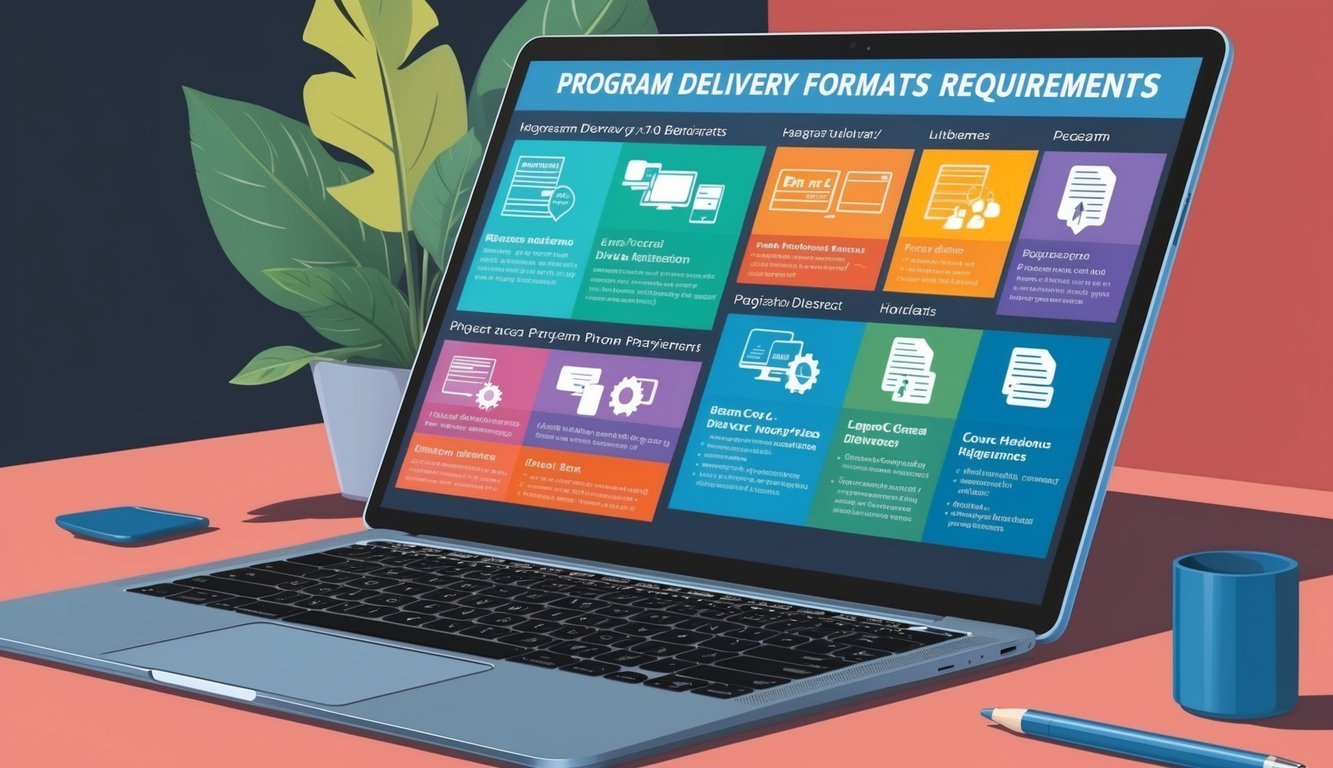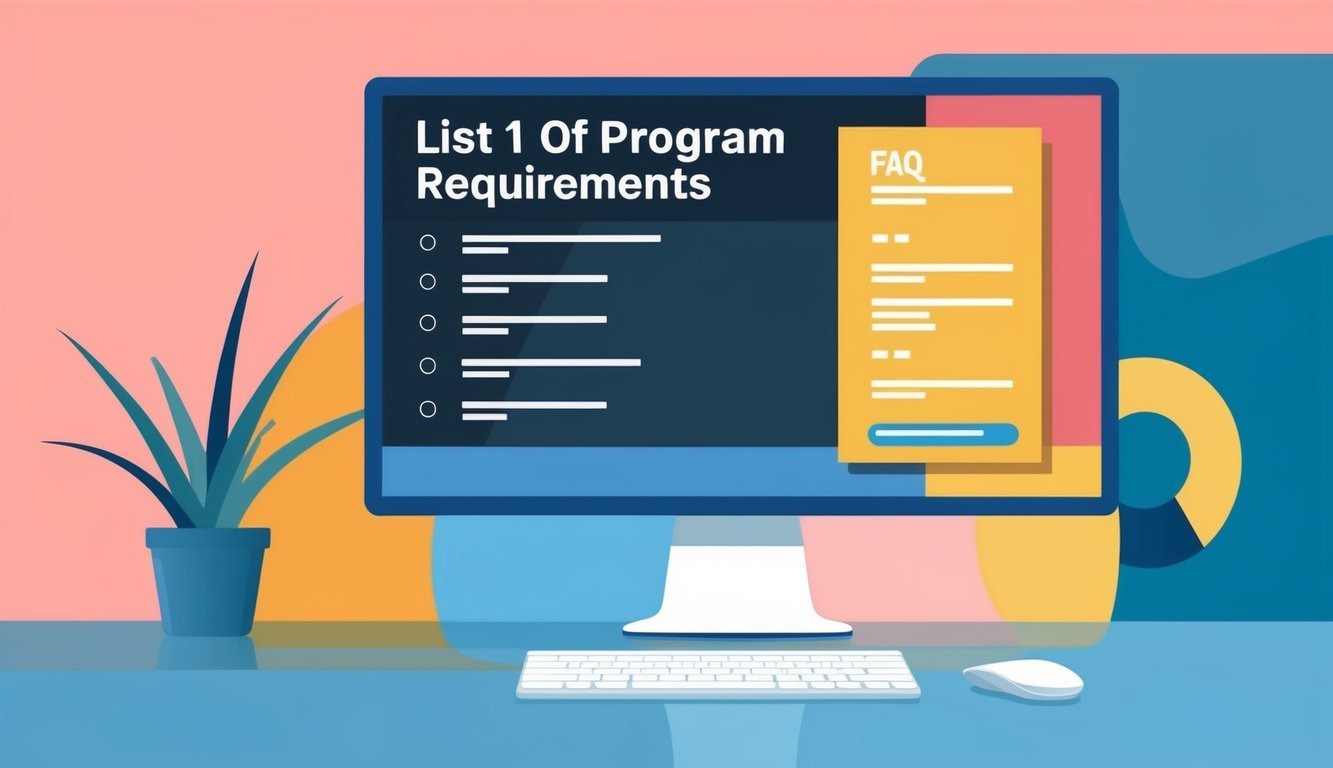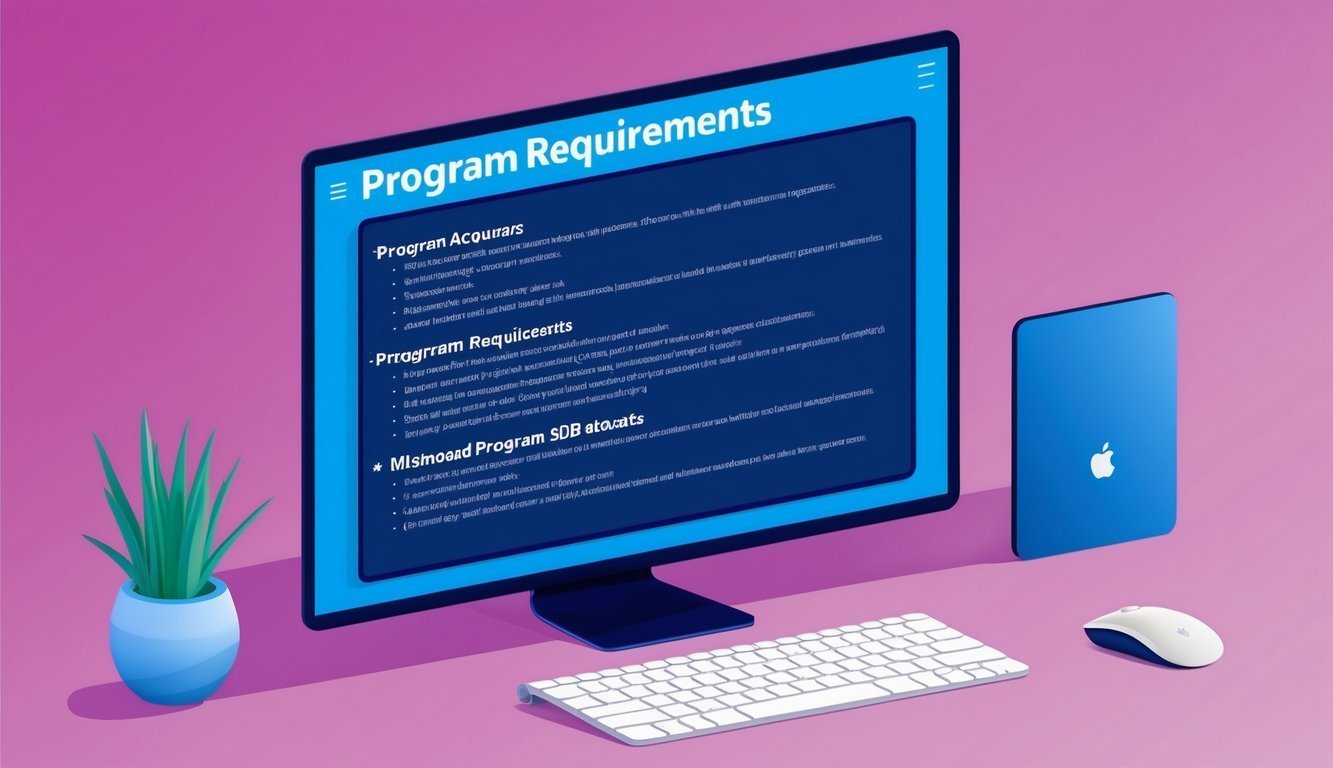Entering a Master of Science in Nursing (MSN) program can be a significant step in advancing your nursing career.
Understanding the MSN program requirements is crucial for anyone looking to specialize as an Advanced Practice Registered Nurse (APRN).
These requirements can vary significantly from one program to another but typically include academic transcripts, relevant nursing experience, and prerequisite courses.
To prepare for admission, you should review the criteria specific to the programs you’re interested in.
Most programs expect a strong academic record and may also require completion of relevant statistics courses.
Familiarizing yourself with the curriculum and the skills you will develop can help you make an informed decision about your future in nursing.
Considering financial aspects and program delivery formats is also important as you plan your education.
You want to ensure that the program fits your schedule and budget, so exploring various options will be beneficial.
Key Takeaways
- Admission requirements for MSN programs often include prior nursing experience and coursework.
- The curriculum is designed to enhance clinical skills and prepare you for certification.
- Understanding financial considerations can help you choose an affordable program.
Admission Criteria
Understanding the admission criteria for an MSN program is essential as it lays the foundation for your application.
The requirements typically focus on your educational background, licensing and certifications, professional experience, and academic performance.
Educational Background
Most MSN programs require you to have a Bachelor of Science in Nursing (BSN) from an accredited institution.
This degree is crucial as it prepares you with the knowledge and skills needed in advanced nursing roles.
In some cases, if you hold an Associate Degree in Nursing (ADN), you might be able to enroll in a bridge program.
In addition to your BSN, some schools may also ask for coursework in statistics or research methods.
Having a solid educational background is an important step for becoming a successful advanced practice nurse.
Licensing and Certifications
To apply for an MSN program, you must hold a valid Registered Nurse (RN) license.
This license affirms your capability to work as a nurse and is a requirement for your admission.
Many programs also require proof of certification in Basic Life Support (BLS) or Advanced Cardiac Life Support (ACLS).
These certifications ensure you are prepared for the demanding nature of clinical practice.
Without an unencumbered RN license, your application may be rejected.
Keeping your licenses and certifications current is vital for meeting admission standards.
Professional Experience
Most MSN programs prefer candidates with some professional nursing experience.
Having at least one year of clinical practice is often recommended, as it shows your commitment to the nursing field.
Experience in specific specialties, such as pediatrics or geriatrics, may also be beneficial depending on your intended focus within the MSN program.
Additionally, you may be asked to provide letters of recommendation from supervisors or colleagues who can attest to your skills and professionalism.
Academic Performance
Your academic performance is another key factor.
Most programs require a minimum cumulative GPA of 3.0 or higher in your undergraduate studies.
Some schools may consider your GPA in nursing coursework even more critically.
You might also be asked to submit standardized test scores such as the GRE or MAT.
This requirement varies by program, so it’s important to check specific guidelines.
An impressive academic record can strengthen your application significantly, reflecting your readiness for advanced education.
Curriculum Overview

The curriculum for the Master of Science in Nursing (MSN) program is designed to equip you with the knowledge and skills needed for advanced nursing practice.
It includes core coursework, specialization tracks, and clinical experience, all essential for a comprehensive education in nursing.
Core MSN Coursework
In your MSN program, you will study key topics that form the foundation of advanced nursing.
Core courses typically include Health Assessment, Pathophysiology, and Advanced Pharmacology.
- Health Assessment equips you with skills for comprehensive patient evaluations.
- Pathophysiology focuses on understanding the mechanisms of diseases.
- Advanced Pharmacology covers medication management and therapeutic measures.
You will also explore subjects like Statistics, Microbiology, and Nutrition.
These courses are critical for understanding patient care and developing treatment plans.
Specialization Tracks
Once you complete core coursework, you can choose a specialization track that aligns with your career goals.
Common options include:
- Clinical Nurse Specialist
- Nurse Practitioner (Family Nurse Practitioner, Pediatric Nurse Practitioner)
- Certified Registered Nurse Anesthetist
- Certified Nurse Midwife
Each track has unique requirements and provides specialized training.
For instance, a Family Nurse Practitioner program focuses on primary care for patients across their lifespan, whereas a Pediatric Nurse Practitioner specializes in child healthcare.
This allows you to tailor your education to specific interests and career paths.
Clinical Hours Requirement
Every MSN program mandates clinical hours to ensure practical experience.
This hands-on training is vital for you to apply what you’ve learned in real healthcare settings.
- You will engage with patients and practice nursing skills.
- Typically, programs require around 500-1000 clinical hours depending on your specialization.
This experience enhances your understanding of patient care, disease prevention, and managing chronic illnesses.
By the end of your program, you will be prepared to handle complex patient needs in various healthcare environments.
Professional Development

In advancing your nursing career, professional development is crucial.
It encompasses enhancing clinical skills, developing leadership capabilities, and engaging in research.
Each aspect plays a significant role in your success and effectiveness in the nursing field.
Clinical Skills and Competence
As a nursing professional, you must prioritize clinical skills and competence.
This involves staying updated with best practices in patient care and mastering advanced techniques.
You may choose to specialize as a Clinical Research Nurse, working on trials and studies that enhance patient outcomes.
Continuous education is essential.
Programs often include opportunities for hands-on training, where you collaborate with peers.
You can also engage in Quality Improvement initiatives to evaluate and improve care processes.
Key topics to focus on include:
- Patient assessment techniques
- Technology integration in nursing
- Evidence-based interventions
Leadership and Administration
Developing leadership skills is vital for career advancement.
As you consider roles like a Nurse Administrator or Nurse Educator, you’ll need to manage teams effectively and foster an environment of collaboration.
Professional development programs often include coursework in Health Policy and organizational management.
This knowledge equips you to influence policies that affect patient care and nursing practices.
Important areas to explore include:
- Conflict resolution strategies
- Resource management
- Interprofessional collaboration
Research and Evidence-Based Practice
Engaging in research is essential for nursing professionals.
It allows you to apply evidence-based practice effectively.
Understanding current research helps you make informed decisions about patient care.
Consider pursuing an Online Master’s in Nursing that emphasizes research methods.
This can prepare you to contribute to scholarly articles or participate in institutional research projects.
Areas to focus on include:
- Critical appraisal of research studies
- Implementation of evidence-based interventions
- Ethical considerations in research
By focusing on these development areas, you position yourself as a leader in the nursing profession, ready to tackle challenges in various healthcare settings.
Certification and Licensure

To practice as a nurse with a Master of Science in Nursing (MSN) degree, you must understand the certification and licensure processes.
These steps are essential for ensuring that you meet the necessary standards to provide high-quality care in your chosen field.
Certification Examinations
After completing your MSN program, you will need to pass a certification examination to practice as an Advanced Practice Registered Nurse (APRN).
The American Nurses Credentialing Center (ANCC) offers several certifications based on your specialty.
Common certifications include:
- Family Nurse Practitioner (FNP)
- Psychiatric-Mental Health Nurse Practitioner (PMHNP)
- Nurse Executive
Each certification has its own requirements for eligibility and exam details.
It’s crucial to review these requirements on the official ANCC website to ensure you meet all criteria.
State Licensure
Once you have passed the certification examination, the next step is obtaining state licensure.
Each state has its own Board of Nursing that regulates licensure for nurses.
You must apply for a license in the state where you plan to practice.
The application typically requires:
- Proof of education
- Certification exam results
- Background check
Make sure to check any specific requirements your state may have.
This information can often be found on your state’s Board of Nursing website.
Continuing Education
To maintain your certification and licensure, you are required to complete continuing education (CE) credits.
These credits ensure you stay updated with the latest practices in nursing.
Most certifying bodies, including the ANCC and the Pediatric Nursing Certification Board, outline specific CE requirements.
Typically, you may need:
- 30-75 hours of CE every few years
- Specialized courses based on your certification
Always verify your state and certification requirements, as these can change.
This proactive approach enhances your skills and ensures compliance with state laws.
Financial Considerations
When pursuing an MSN program, it’s essential to understand the financial aspects involved.
Here are some key points to consider:
Tuition and Fees
Tuition can vary widely between schools.
On average, you might expect to pay between $15,000 and $30,000 for the entire program.
Here is a quick overview of costs:
| School Type | Tuition Range |
|---|---|
| Public Universities | $10,000 – $20,000 |
| Private Universities | $20,000 – $40,000 |
| Online Programs | $15,000 – $30,000 |
Financial Aid
You may qualify for financial aid, which can include federal loans and work-study programs.
To apply, submit the FAFSA form.
This can help determine your eligibility for various types of aid.
Scholarships and Grants
Look for scholarships and grants specifically for nursing students.
Websites like Nursing.org provide a list of available options.
Scholarships can significantly reduce your financial burden.
Transfer Credits
If you have previously completed graduate-level courses, check if your program allows transfer credits.
This can lower your overall tuition costs and reduce the time needed to complete your degree.
Being aware of these financial considerations can help you plan your education and manage costs effectively.
Program Delivery Formats

When considering an MSN program, you will find various delivery formats that cater to different lifestyles and learning preferences.
Understanding these formats can help you choose the right one for your educational journey.
Online Learning Platforms
Online MSN programs offer flexibility and convenience.
Learning platforms allow you to complete your coursework from anywhere, making it ideal for those with busy schedules.
Through these platforms, you can also access various resources.
These include video lectures, discussion boards, and interactive assignments.
Many schools even provide virtual simulations and digital libraries to enhance your educational experience.
Programs like the RN-to-MSN or BSN-to-MSN often emphasize online learning.
This approach allows you to learn at your own pace while balancing work and personal commitments.
Check out various Online Nursing Degree programs for options that match your needs.
Hybrid Program Options
Hybrid programs combine online learning with traditional in-person classes.
This format allows you to engage with instructors and peers face-to-face while still having the flexibility of online education.
Typically, you will attend on-campus sessions for intensive workshops or skills training.
This model suits students who want hands-on experience but also prefer the convenience of online coursework.
Programs like the Direct-Entry MSN may use hybrids to prepare students better for nursing roles.
This format provides a balance, ensuring you receive both theoretical knowledge and practical skills necessary for your career.
Investigate different universities for hybrid MSN offerings.
On-Campus Intensives
On-campus intensives are designed for students who prefer a structured learning environment.
These programs usually require you to be present on campus for a certain period, often during specific weekends or for a few weeks at a time.
During these sessions, you will focus on various activities.
These include advanced nursing skills, group projects, and networking opportunities with faculty and peers.
Being present in an on-campus setting allows for immediate feedback and personal interaction.
While the BSN-to-MSN programs can include various on-campus experiences, direct interaction with instructors can enhance your learning.
Look into MSN programs that offer on-campus intensives for an immersive educational experience.
Frequently Asked Questions

When applying to a Master of Science in Nursing (MSN) program, you may have various questions.
Below are some common inquiries regarding admission requirements, GPA expectations, and other important details.
What are the general admission requirements for a Master of Science in Nursing (MSN) program?
Most MSN programs require you to have a Bachelor of Science in Nursing (BSN) from an accredited institution.
Additionally, you must hold a valid, unencumbered Registered Nurse (RN) license.
Some programs might also require relevant work experience.
What GPA is typically required for entry into an MSN program?
Most MSN programs usually expect a minimum cumulative GPA of 3.0 on a 4.0 scale.
Some institutions may consider applicants with a GPA lower than 3.0 through a holistic review process.
It’s important to check specific program requirements.
Are there direct entry MSN programs available for students without a BSN?
Yes, certain institutions offer direct entry MSN programs for students who hold a bachelor’s degree in a non-nursing field.
These programs provide an accelerated pathway to obtain a nursing degree.
Look for programs that specify this option in their admission criteria.
What prerequisites must be fulfilled for entry to a direct entry MSN program?
Direct entry MSN programs typically require completion of specific prerequisite courses.
Common prerequisites include subjects like anatomy, physiology, microbiology, and statistics.
Be sure to confirm with the program for a complete list of required courses.
What specific requirements must international students meet to enroll in an MSN program?
International students often need to provide proof of English proficiency through tests like the TOEFL or IELTS.
You may also need to have your academic credentials evaluated to ensure they meet U.S. standards.
Check individual program requirements for more specifics.
How competitive are admissions for MSN programs?
Admissions at well-regarded schools can be quite competitive.
Factors such as your academic record, letters of recommendation, personal statements, and relevant experience can all impact your chances.
Prepare a strong application to improve your odds.

